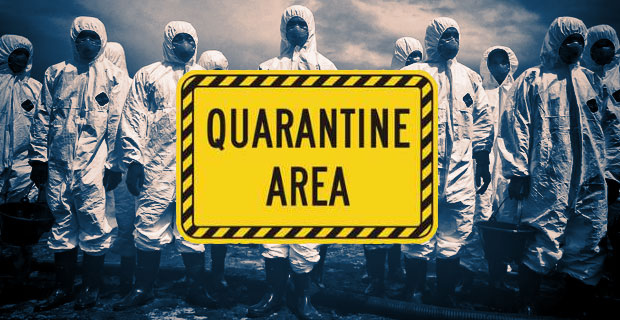Vote Libertarian, Because Not All Politicians Are Smart, But All Politicians Can Count
Thus proclaims Arvin Vohra, Vice Chair of the Libertarian National Committee and a candidate for Maryland’s fourth congressional district. Vohra and I are in agreement that the only effective way to tell politicians they must shrink the size and scope of government is to vote for libertarian candidates (“small l” intended).
Not voting at all accomplishes nothing more than making one’s opinions irrelevant to the people who hold political power. Voting for the “less bad” of the two contenders is guaranteed to continue the policies of the last two administrations.
In contrast, consistently voting only for libertarian candidates pulls the two major parties toward more libertarian positions. That, standing alone, is reason to vote libertarian.
We know the strategy works because it is working! Twenty-five years ago, mainstream journalists rarely mentioned libertarians. Now, not a day goes by that the word is not featured in the headlines of big-name publications or crossing the lips of mainstream commentators.
Google the words “libertarian moment,” and witness how shrilly both the left and the right deny that one is occurring.
Their foot-stamping to the contrary, Republicans are fundraising for openly gay candidates. Donors are pressing the party to stay out of marriage altogether. Republican candidates are campaigning to make birth control available over the counter. The first U.S. Senator has come out in favor of marijuana legalization.
Thanks for these shifts goes in some degree to the people who consistently prove their motivation to visit the polls, while simultaneously refusing to cast votes for statist candidates in either party. More people today identify as independents than either Republicans or Democrats. Fifty-nine percent of voters self-identify as “fiscally conservative and socially liberal.” Even under conservative estimates, 15% of voters can be treated as consistently “libertarian” in their positions.
Libertarians (“small l”) have become a swing-voting block as powerful as the religious right.
The best use of that power is to end the conspiracy of false choice and emotional partisanship that operates to keep the two-party oligarchy in power.
The Republocrats have given us federalized schools; a morass of unfunded entitlements and dependency; wild inflation in the cost of education and healthcare; the Drug War, the highest incarceration rate in the world, militarized police, and asset forfeitures; welfare and cronyism for corporations, agribusiness and green energy; a national debt in the trillions; the surveillance state and the erosion of the fourth amendment; expensive, immoral, ineffective and deadly interventions overseas; and restrictions on political speech.
If the foregoing is not convincing enough, consider the following. When Republicans are in power, Democrats support balanced budgets, oppose unfunded spending and resist increases to the debt ceiling. As then-senator Barack Obama said in 2006:
This rising debt is a hidden domestic enemy, robbing our cities and States of critical investments in infrastructure like bridges, ports, and levees; robbing our families and our chil- dren of critical investments in edu- cation and health care reform; robbing our seniors of the retirement and health security they have counted on.
* * *
Increasing America’s debt weakens us domestically and internationally. Leadership means that ‘‘the buck stops here.’’ Instead, Washington is shifting the burden of bad choices today onto the backs of our children and grandchildren. America has a debt problem and a failure of leadership. Americans deserve better.
When the Republicans are in power, they simply trade positions. Republicans complain about spending and Democrats oppose balanced budgets.
Or consider this example from Robert Sarvis, Virginia’s libertarian candidate for U.S. Senate:
In 2008, when Republicans were the ones supporting the Export-Import Bank, candidate Barack Obama called it little more than corporate cronyism, but in 2014, it was Democrats lining up to support it. Virginia’s Democratic Senators Mark Warner and Tim Kaine introduced the reauthorization bill, and President Obama signed it.
Republicans are keeping the bank going until 2015 when they can figure out who is is in power, so they know which position to take.
How anyone keeps falling for this shtick is beyond me.
Spoilerism is a feature of third party voting, not a glitch. It communicates to mainstream politicians that we’re here, we vote, and if they want to beat their opponent, they need us to do it. The libertarian moment is nigh. Stay the course.


